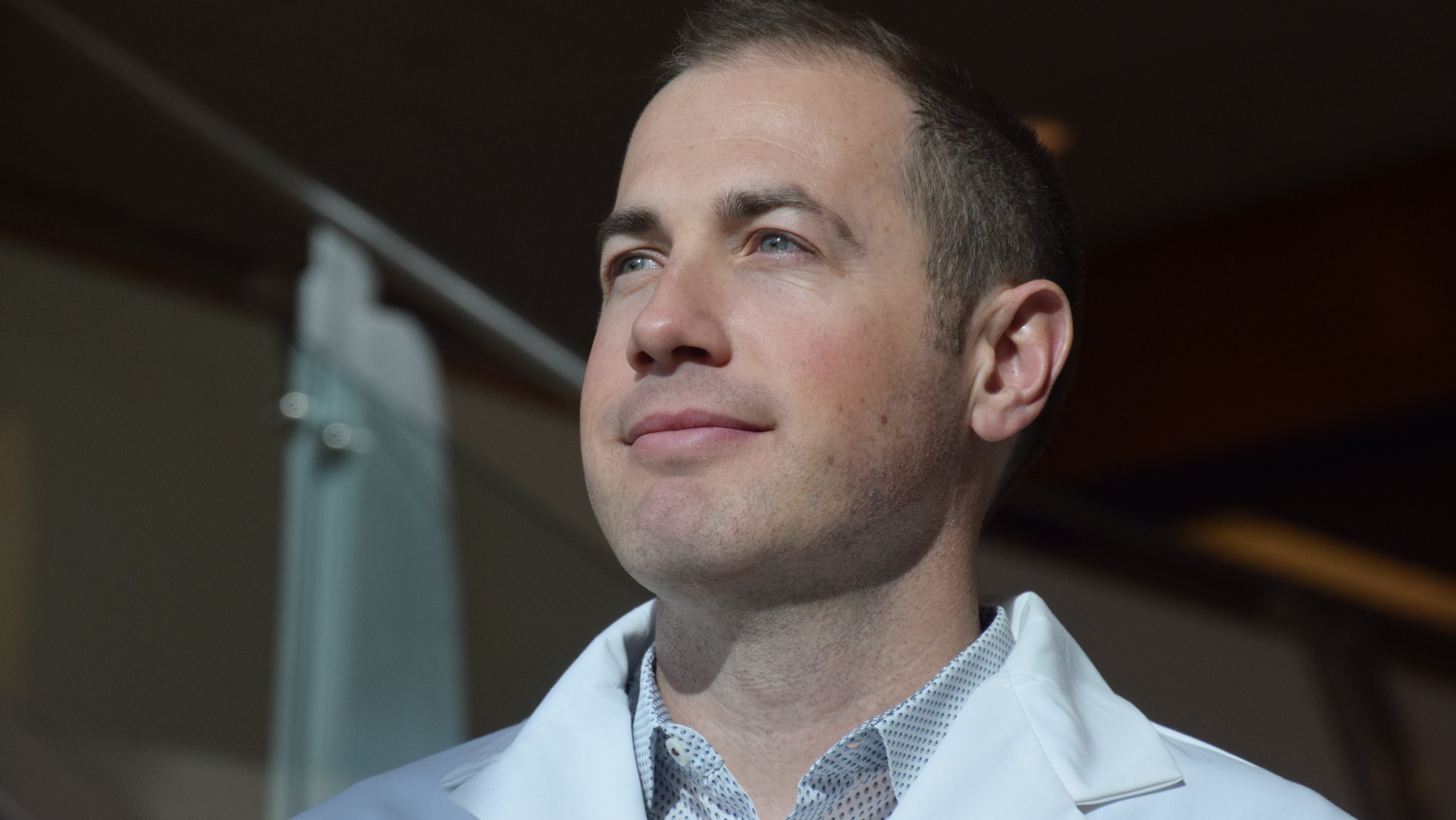A University of Alberta research team is testing graft materials that deliver anti-rejection drugs directly to transplanted insulin-producing cells with the goal of making transplants safer and more accessible for people with diabetes.
The project is one of 13 U of A research proposals funded by new Canadian Institutes of Health Research grants worth nearly $10 million (see full list of projects below).
“We're looking at reducing the reliance on systemic immunosuppression drugs and keeping them localized to just the cells that are providing the glucose control instead of the whole body,” explains Andrew Pepper, assistant professor of surgery and Canada Research Chair in Cell Therapies for Diabetes.
“We think that will reduce the side-effects, reduce the risk and increase the patient population that could benefit from a life-changing beta cell replacement therapy,” says Pepper, who co-leads the project with Greg Korbutt, scientific director of the Alberta Cell Therapy Manufacturing facility.
An estimated 300,000 Canadians have Type 1, or insulin-dependent, diabetes. In 2000, a U of A team launched the groundbreaking Edmonton Protocol — which has so far transplanted insulin-producing beta cells into the livers of 255 patients whose diabetes could not be well controlled with insulin injections.
Those patients must take lifelong anti-rejection drugs, which can lead to infection, kidney damage and even cancer. The transplant program relies on donated organs, with each recipient needing cells from two or three donors, so the number of patients who can be treated is limited.
“We know that in the early post-transplant period, within hours to days, we lose up to 70 per cent of the cells,” says Pepper. “If we can help the cells to survive longer then hopefully we can use just one pancreas per recipient.”
Pepper’s research team will graft beta cells under the skin with bubble-like microparticles developed by research associate and biomaterials expert Purushothaman Kuppan. They slowly release medication to prevent post-transplant inflammation, promote insulin secretion and encourage cell survival. The team will first test the grafts on mice and pigs and then, if results continue to be positive, will make plans for a human clinical trial.
“We have been able to use a fraction of the dose (of anti-rejection medication) in animal models to date, with the cells surviving for hundreds of days,” says Pepper. “The drugs are only present for about a month because the bubbles pop over time.”
Pepper is hopeful the method would be effective at protecting donor beta cells or beta cells derived from the patient’s own stem cells, another advance being developed at U of A.
The project will receive $1,082,476 over five years from CIHR, building on work previously supported by the Juvenile Diabetes Research Fund and Alberta Innovates. Pepper and Korbutt are members of the Alberta Diabetes Institute.
More new CIHR grant recipients from U of A
Troy Baldwin, Faculty of Medicine & Dentistry
Mechanisms regulating non-deletional T cell central tolerance
$100,000
Shokrollah Elahi, Faculty of Medicine & Dentistry
Erythroid progenitors and precursors impair tumor immunogenicity and promote tumour progression in breast cancer
$100,000
Karim Fouad, Faculty of Rehabilitation Medicine
Improving reproducibility in experimental research by using shared data - a use case in spinal cord injury
$784,126
Roseline Godbout, Faculty of Medicine & Dentistry
Polyunsaturated fatty acids and the proteins that bind them: Driving glioblastoma growth and infiltration in brain
$990,676
Padma Kaul, Faculty of Medicine & Dentistry
The diabetes and cancer outcomes in a real-world setting (DISCOURSE) study
$462,824
Michael Kolinsky, Faculty of Medicine & Dentistry
oPTion-DDR: A randomized phase III trial investigating platinum and taxane chemotherapy in metastatic castration resistant prostate cancer patients with alterations in DNA damage response (DDR) genes
$1,828,350
Richard Lehner, Faculty of Medicine & Dentistry
Regulation of hepatic fat synthesis, turnover and transport by arylacetamide deacetylase (AADAC)
$952,426
Sue-Ann Mok, Faculty of Medicine & Dentistry
Systematic manipulation of tau protein aggregation: bridging biochemical and pathological properties
$960,076
Candace Nykiforuk, School of Public Health
Improving awareness and uptake of systems-oriented resources for action on poverty and financial wellbeing: An integrated KT and evaluation project
$244,800
Mohammed Osman and Robert Gniadecki, Faculty of Medicine & Dentistry
MUC16 (CA125) mutations promote fibrosis and autoimmunity in systemic sclerosis
$100,000
John Seubert, Faculty of Pharmacy and Pharmaceutical Sciences
Synthetic analogues based on metabolites of omega-3 fatty acids protect mitochondria in aging hearts
$906,526
Michael Zaugg, Faculty of Medicine & Dentistry
Vegaven, a novel lipid emulsion with unique superior biological actions designed for parenteral nutrition
$818,550
